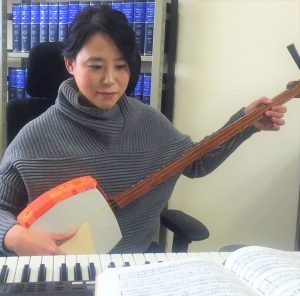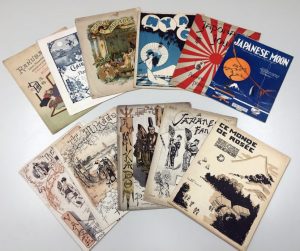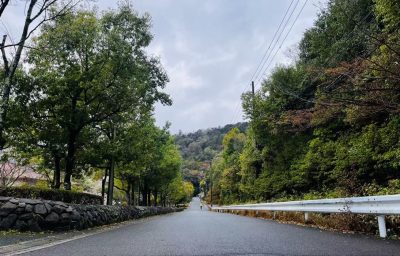COMMUNICATIONS
Linking Humanities Research with Society
In October 2019 I became a “liberal arts communicator,” a specially appointed assistant professor [at Nichibunken]. My specialty is Musicology , and I am interested in the history of music therapy in Japan and the West and the history of cultural exchange through music. Currently, I am studying music therapy interventions carried out at sites of medical practice from Meiji to prewar-Shōwa. By analyzing medical records, nursing logbooks, records of practice, photographs, and other primary sources, I explore the characteristics underlying such Japanese approaches to music therapy.

Engaged in research on the history of music therapy. Photograph by Song Qi.
In parallel with my research on the history of music therapy, I am studying “musical Japonisme,” that is, Western musical compositions that were written on the theme of Japan when the country was being opened up to the world at the end of the Tokugawa era. I am learning how Japan was represented in Western music and how audiences listened to that music at a time when information about Japan was far more limited than it is today. I am aiming to utilize this fresh approach to deepen research on historical sources in Western languages about Japan and research on popular culture.

Example of a representation of Japan in Western music in the Nichibunken Collection.
Liberal arts communicators assigned to each of the six research institutes under the National Institutes of the Humanities umbrella are engaged in promoting the kind of two-way communication in which the results of scholarly research are made available to society, explaining the attractiveness of the subject-matter in easy-to-understand language and then feeding back the questions about and expectations expressed for that content in the research itself. I, too, plan to provide the latest information on Nichibunken researchers and their research activities, including the research on music I myself am engaged in, and pursue dialogue concerning that research with society as well as with scholars in other fields.




